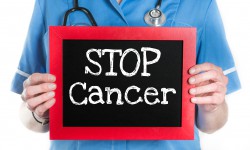
Thanks to cutting-edge treatments like immunotherapy, more and more cancer patients are experiencing positive outcomes. If you’re one of the nearly 15 million cancer survivors in the United States, you may feel a bit adrift as you try to resume your everyday life.
Dr. Joanne Mortimer of the Women’s Cancers Program at City of Hope offers these valuable tips to help you cope and even thrive post-treatment.
Take Care of Your Body and Mind
Cancer is a physical disease that also affects your mental and emotional states. Don’t allow worries about finances, spousal intimacy or other issues to interfere with your recovery. Talk to your doctor and get a referral for a counselor or support group.
Be Realistic
The end of treatment can be similar to other types of loss, where you feel uncertain about where to go from there. Focus on matters you can control, such as following a healthy diet or staying physically active, and you will feel less anxious about the things you can’t.
Educate Your Doctor
The increasing number of cancer survivors is relatively recent, so doctors are also learning about life post-treatment. Don’t be afraid to discuss any symptoms with your doctor, no matter how minor you might think they are. The more information you provide, the better your doctor will be able to assist you and other cancer survivors down the road.
Our Issels® personalized immunotherapy treatments have helped a number of people achieve long-term remission. Visit our website and be inspired by testimonials from patients who have survived cancers of almost every type.





